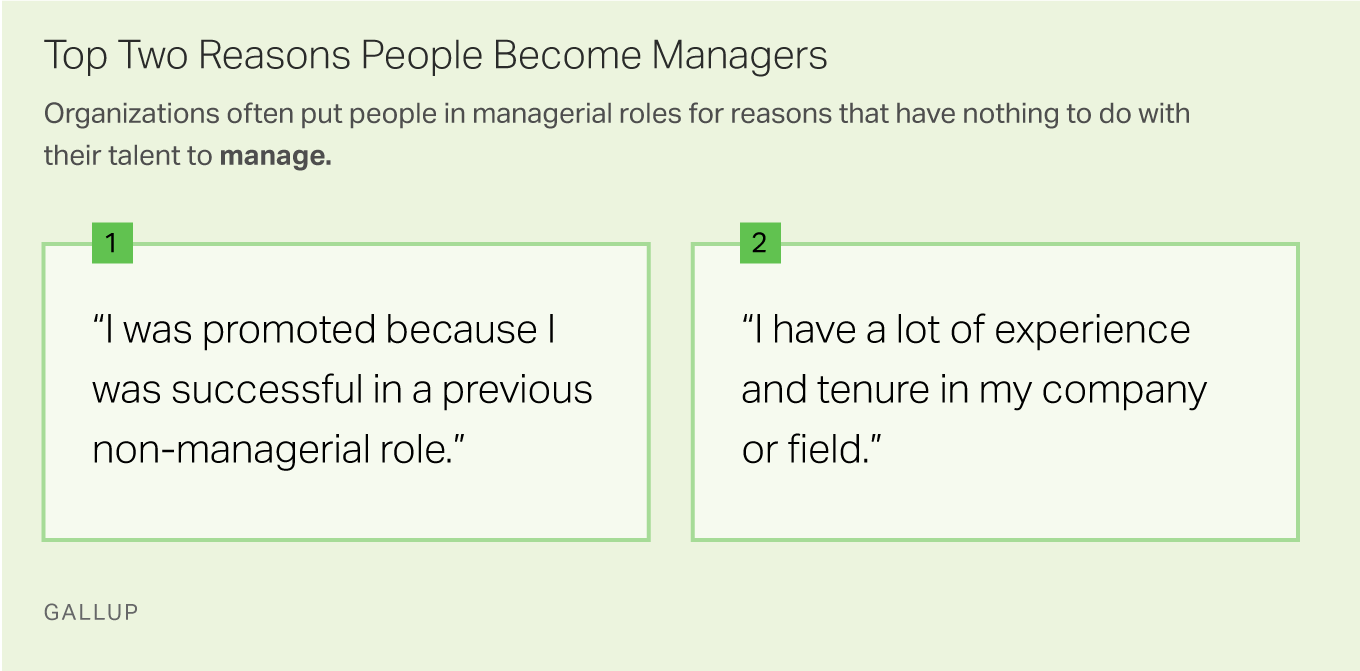
The No. 1 Employee Benefit That No One's Talking About
by Tom Nolan
People leave managers, not companies.
You've heard it before.
One in two employees have left a job to get away from a manager and improve
their overall life at some point in their career, according to Gallup's
State of the American Manager report.
Bad managers are abundant, and they leave an impression -- that's what
makes movies like
Office Space so funny. Almost everyone can relate to the sense of dread about coming
to work when a manager makes an otherwise good job feel like a dead end.
But the effects of bad management reach farther than just engagement --
they can actually undermine your company's efforts to help employees
improve their health.
From the
State of the American Manager report,
"Having a bad manager is often a one-two punch: Employees feel miserable
while at work, and that misery follows them home, compounding their stress
and putting their well-being in peril."
Your company likely makes a significant investment in benefits programs
aimed at employee retention and lowered healthcare costs.
According to Mercer's National Survey of Employer-Sponsored Health
Plans, the average health benefit cost per employee has increased by over
16% in just the last five years.
Companies spend hundreds of millions of dollars in this area, but the actions
of a poor manager
negate the positive effects of your company's benefits programs.
When employee health suffers, your company suffers.
Unhappy, unhealthy employees affect:
- Absenteeism
- Performance
- Customer ratings
- Quality
- Profit
Your company would never promote smoking or other bad practices that are
scientifically linked to health problems -- you'd be undermining all
of your efforts to
improve employee health and well-being.
It's time to think of management the same way -- a bad manager is damaging
to your employees' health and, as a result, to your company's
bottom line.
The good news is, this finding works both ways. According to the
State of the American Manager report,
"Managers account for
at least 70% of the variance in employee engagement scores."
Just as a bad manager can ruin a good job, a great manager can make a good
job even better.
So if people leave good jobs because of bad managers, why don't they
seek out jobs that offer great managers?
Probably because they don't know where the great managers work.
Most companies don't currently think about great managers as a benefit
or publicize that benefit to prospective employees.
It's a huge missed opportunity.
To attract the best employee talent, every company should publicize great
managers as part of their employee value proposition (EVP).
And to keep the star people you've worked so hard to find and hire,
you need to deliver on the promise of great management.
You should select for specific managerial talents when hiring managers
and offer
training and development for managers throughout their careers.
Effective people management could be the most difficult aspect of sustaining
a thriving enterprise.
Companies need to devote more attention to promoting and developing good
managers, and then start letting the world know they have these good managers.
Here's Gallup's advice for building a healthy and thriving organization,
starting with your managers.
1. Understand the characteristics of a great manager.
Gallup's research reveals that
about one in 10 people possess high talent to manage.
That 10%, when put in managerial roles, has a strong natural ability to:
- Put the right people in the right roles
- Create a culture of clear accountability
- Engage employees with a compelling vision
- Motivate every employee individually
- Coach and develop their people by focusing on their strengths
- Make decisions based on productivity, not politics
- Build trust and dialogue with their people about both work and life outside of work
According to the
State of the American Manager report,
"18% of those currently in management roles demonstrate a high level
of talent for managing others, while another 20% show a basic talent for
it. Combined, they contribute about 48% higher profit to their companies
than average managers do."
2. Select and promote managers for the right reasons.
The two things that usually earn a promotion to management have nothing
to do with great management ability: tenure and mastery of a previous,
non-managerial role.
Effective people management requires a talent set of its own, and someone
who shined in a previous role may not transition seamlessly to a managerial role.
From the
State of the American Manager report:
"Gallup finds that companies fail to choose the [managerial] candidate
with the right talent for the job 82% of the time."
Hiring great managers takes a rigorous, validated process.
Management is a talent just like any other job skill, and it
requires a significant amount of soft skills such as relationship-building that often go overlooked.
While development can be effective, the most effective method for getting
great managers is rigor and accountability when finding, hiring and promoting
people with natural management abilities.
These great managers can come from inside your organization or outside,
and they may often be hiding in plain sight in another role.
Gallup has studied, tested and defined the best method for selecting people
with natural managerial talents. Use our tools to place the right people
in management roles and see major improvements all across your business
-- most significantly, in employee health.
3. Talk about great managers as your company's No. 1 benefit.
There are many
more poor managers than great managers, so this benefit is rare and differentiates your organization from the rest.
Now that you know the breadth of influence managers have on your company
-- and how to find and hire talented ones -- it's time to sing their praises.
Publicize your great managers on hiring websites as a major part of your
EVP, and make sure prospective employees know the benefit a truly talented
manager can bring to their work and life.
Remember -- half of all people searching for a new job left a job because
of a bad manager.
All other things being equal, when an individual is considering two companies
in their job search, they'll choose the company with better managers.
The effect of a great manager is the gift that keeps on giving.
Happy, healthy employees mean a better culture and a more productive, profitable
company. They love their jobs and spread the word -- setting you up to
hire and keep more top talent.
Learn more about how Gallup can help your organization attract, hire and
retain great managers:
Jane Smith contributed to the writing of this article.



